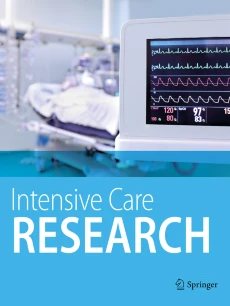Aims and Scope
Recently several excellent studies demonstrate high morbidity of neurological disturbances ranging from delirium to coma among patients admitted to the intensive care unit (ICU). For example, the prevalence of delirium in the ICU is 32.3%. The group of these neurological disturbances term “encephalopathy”. Various critical diseases associated with encephalopathy include cerebral diseases such as stroke, and trauma, or systemic disorders such as sepsis, acute respiratory distress syndrome, and exposure to pharmacological toxins and agents. Currently, the effects of encephalopathy on outcomes of ICU patients raise much interest. There is emerging evidence that encephalopathy is an independent risk factor of mortality and causes the poor outcome of critical patients. Moreover, ICU survivors often suffer long-time cognitive impairment. Although the impact of encephalopathy on patients admitted to ICU is increasingly recognized, its potential molecular mechanisms are still poorly understood and standardized clinical management is lacking. There is great interest in identifying the molecular mechanisms of encephalopathy and developing effective preventive and therapeutic interventions.
Main topics and quality control
The goal of this Special Issue is, therefore, to collate state-of-the-art research focused on developing effective preventive and therapeutic interventions on encephalopathy in ICU. We are particularly interested in studies that improve our understanding of the molecular mechanisms of encephalopathy in ICU. We welcome the submission of Reviews, Systematic Reviews, Mini-Reviews, Hypothesis and Theory, Perspectives, Clinical Trials, and Original Research articles that allow narrowing existing knowledge gaps.
Potential topics include but are not limited to the following:
• Predictive analytics of encephalopathy in ICU
• Treatment strategies for ICU patients with encephalopathy
• Clinical application of analgesics and sedatives in ICU patients with encephalopathy
• Monitoring and nursing management of ICU patients with encephalopathy
• Exploring the molecular mechanisms of encephalopathy in ICU
Full papers will be subject to a strict review procedure for final selection to this special issue based on the following criteria:
1. Quality and originality in theory and methodology of the special issue.
2. Relevance to the topic of the special issue.
3. Research orientation which exhibits novelty.
4. If there is a funding, the details of the funding must be provided.
5. Presence of the following statements (if applicable): disclosure of potential conflicts of interest, research involving human participants and/or animals, informed consent.




